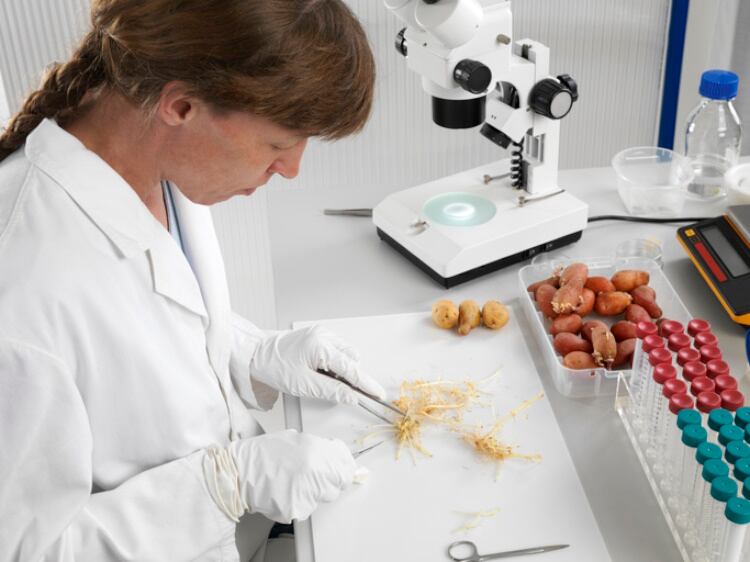The bakery and snack industries are bracing for a seismic shift as Robert F. Kennedy Jr. assumes leadership of the Department of Health and Human Services (HHS) under President-elect Donald Trump.
The former environmental attorney – who still faces confirmation by the Senate – is a polarising figure known for his outspoken views on public health, environmentalism and corporate accountability. He’s pledged to overhaul the nation’s approach to health, and this of course, includes food. For producers of packaged snacks, pastries and baked goods, his tenure could usher in a wave of regulatory changes that present both significant challenges and potential opportunities.
We continue to monitor and assess what ultimately [Kennedy’s] agency and policies will be.
Tucker Marshall, CFO, The JM Smucker Company
Kennedy’s agenda – rooted in his ‘Make America Healthy Again’ campaign – takes direct aim at ultra-processed foods (UPFs), artificial additives and the broader food production system. While health advocates hail his goals, several stakeholders in the food industry have expressed apprehension. Companies like Hostess and Smucker’s have voiced concerns, while others have already felt the impact: Shares of companies like Kraft Heinz and Conagra dropped following Kennedy’s nomination, signalling market concerns over possible sugar taxes and reformulation mandates.
A new era of ingredient scrutiny
Central to Kennedy’s vision is a drive for greater transparency in food production, particularly in ingredient use and labelling. His stance reflects a broader consumer demand for ‘clean’ products that are free of artificial additives and food dyes, such as Red No. 3.
This will force companies like The JM Smucker Company – which recently acquired Hostess Brands – to reformulate products like Twinkies and Donettes (known for their long shelf life, thanks to additives) to comply with stricter regulations.
“As it relates to the incoming administration under RFK’s leadership, we need to assess any policy decisions,” said Smucker’s CFO Tucker Marshall.
“We continue to monitor and assess what ultimately his agenda and policies will be.”
Marshall added that despite Kennedy’s rhetoric, Americans still want sweet indulgences, such as Hostess’ Twinkies and Donettes.
Smucker’s sugar-free jams, jellies and preserves, too, will need an overhaul as many include food dyes, the company said.
“The company will continue to review ingredients to ensure alignment with the expectations of consumers and all of its products will continue to meet all regulatory requirements,” the company said in a statement.
Kennedy’s push to ban additives outlawed in Europe has sparked both support and scepticism. Influencer Vani Hari, aka The Food Babe, applauds the potential crackdown.
“Our American companies cannot use ingredients that are banned and heavily regulated in other countries in the same exact products that they sell overseas,” said Hari.
“They’re using better, safer ingredients in Canada, in all of Europe, in Australia, in India.”
However, a US Food and Drug Administration (FDA) spokesperson told the BBC that the agency disputes claims suggesting the US permits thousands of additives banned in the EU, emphasising the need to “dig deeper and understand the context behind the numbers,” as the regulatory frameworks in the US and EU rely on different methodologies.
Sustainability and environmental compliance

Kennedy’s environmental advocacy poses challenges for bakery and snack producers. He has repeatedly championed regenerative agriculture and criticised the industry’s reliance on harmful farming practices, pesticides and non-biodegradable packaging.
“Reducing the carbon footprint of food production isn’t just a policy priority – it’s a moral imperative,” Kennedy stated during a recent rally. This stance could lead to tighter regulations on sourcing, processing and packaging.
For companies like Nestlé – where cereals remain a cornerstone of its portfolio – Kennedy’s environmental agenda align with its own sustainability goals.
“We already believe in regenerative, cleaner agriculture,” a Nestlé spokesperson said.
For smaller manufacturers, though, adapting to stricter environmental standards could be an uphill battle. Mandates on recyclable or biodegradable packaging, for instance, could demand significant investment. Switching to greener packaging materials – while aligning with consumer expectations – could also erode profit margins. Supply chain audits to ensure sustainable sourcing of ingredients could further add to operational complexities.
Targeting sugar and processed foods

One of Kennedy’s most ambitious goals is reducing the prevalence of UPFs and foods high in sugar.
In October, Kennedy posted on X that ‘ultra-processed food is fuelling the obesity epidemic’, further emphasising his stance against these widely consumed products, citing their contribution to rising rates of cancer, cardiovascular disease and diabetes.
But while research increasingly associates products heavily modified with added fats, starches and sugars, such as chips, sugary breakfast cereals and frozen pizzas, with obesity, cancer and depression, a direct causal relationship has yet to be definitively proven.

We are betraying our children by allowing [food] industries to poison them.
Robert F. Kennedy Jr.
Kennedy has also been vocal about the need to reform school lunch programmes, telling Fox News, “We have a generation of kids swimming in a toxic soup”.
Speaking at a rally in November after ending his independent presidential bid to endorse Donald Trump, he went further, stating, “We are betraying our children by allowing [food] industries to poison them.”
The 70-year-old’s stance on food reform, though, contrasts sharply with Trump’s reputation as a fast-food enthusiast, along with the President-elect’s efforts to loosen health regulations on school lunches during his first term. This divergence raises questions about how Kennedy’s ambitious agenda will align with Trump’s priorities.
“What he’s suggesting is taking on the food industry. Will Trump back him up on that? I’ll believe it when I see it,” Marion Nestle, a former New York University nutrition professor, told the BBC.
Still, she believes Kennedy’s campaign is overdue. “It is just thrilling to hear somebody argue for doing something about chronic disease.”
Food safety and compliance pressures

Kennedy has vowed to ‘take a sledgehammer’ and overhaul the FDA’s approach to food safety, citing concerns about pathogen control, traceability and systemic inefficiencies.
“There are entire departments, like the nutrition department at the FDA … that have to go, that are not doing their job,” Kennedy stated in an interview with MSNBC.
For producers, this could signal significant changes, including more frequent inspections, expanded testing requirements and stricter protocols for tracking ingredients across supply chains. While larger companies may be able to absorb these costs, smaller producers operating on tight margins could struggle to keep up, potentially leading to industry consolidation.
The FDA has faced criticism in recent years from lawmakers and consumer groups who have accused it of a lack of transparency and insufficient action on food safety. However, the FDA doesn’t make the rules: it merely enforces policies set by Congress and works to limit unhealthy foods through measures like nutrient labelling. Former officials have pointed out that regulating UPFs, for example, isn’t within the FDA’s current authority and would require a more complicated regulatory overhaul involving the US Department of Agriculture.
Former FDA associate commissioner Peter Pitts has expressed cautious optimism, stating, “[Kennedy] is against the status quo. But I think giving the status quo a swift kick in the ass is a good thing. It keeps people on their toes. It’s creative destruction.
“If we can get some positive outcomes where people are actually thinking about doing something different, that’s all to the good,” added Pitts.
Yet, some industry experts warn that Kennedy’s policies could stifle innovation. Lengthy approval processes for new ingredients and stricter labelling requirements might deter companies from developing novel products. The combination of increased regulatory scrutiny and heightened consumer expectations could also expose producers to litigation risks if they fail to adapt quickly.
Opportunities amid challenges

Despite the challenges, Robert F. Kennedy Jr’s leadership also presents opportunities for producers prepared to adapt. As consumer demand grows for clean-label products, plant-based alternatives and sustainable packaging, companies with a forward-looking approach are well-positioned to succeed in this evolving landscape.
Proactively addressing health concerns – by reformulating products, responsibly sourcing ingredients and reducing additives – will allow brands to lead in a market increasingly shaped by ethical and sustainable practices. And by emphasising transparency, sustainability and compliance, businesses not only meet new expectations but also position themselves as pioneers of a more responsible and health-conscious food industry.
What’s clear is that the industry is at a critical juncture, with changes that will ripple beyond US borders to impact global markets. How bakery and snack producers respond to these shifts will determine whether Kennedy’s tenure becomes a turning point or a missed opportunity for innovation and growth.
Strategies to adapt
While the challenges may seem daunting, there are proactive steps bakery and snack producers can take to navigate the evolving landscape effectively:
- Invest in R&D: Reformulate products to align with cleaner, healthier and more sustainable standards while preserving taste and affordability.
- Strengthen compliance systems: Enhance food safety protocols, traceability measures and labelling practices to meet potential new regulatory requirements.
- Build sustainability into operations: Adopt eco-friendly practices in energy usage, waste management and packaging to stay ahead of environmental mandates.
- Engage with policymakers: Collaborate with industry associations to ensure the unique challenges of bakery and snack producers are considered in policymaking.
- Educate consumers: Use transparent marketing to emphasise efforts in health, sustainability and innovation, building trust and loyalty among increasingly discerning customers.

